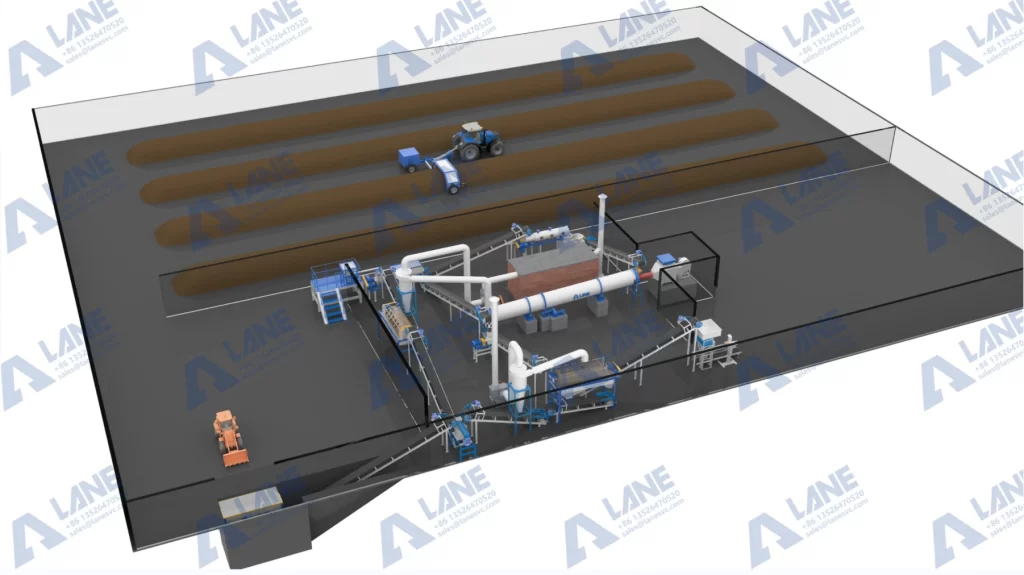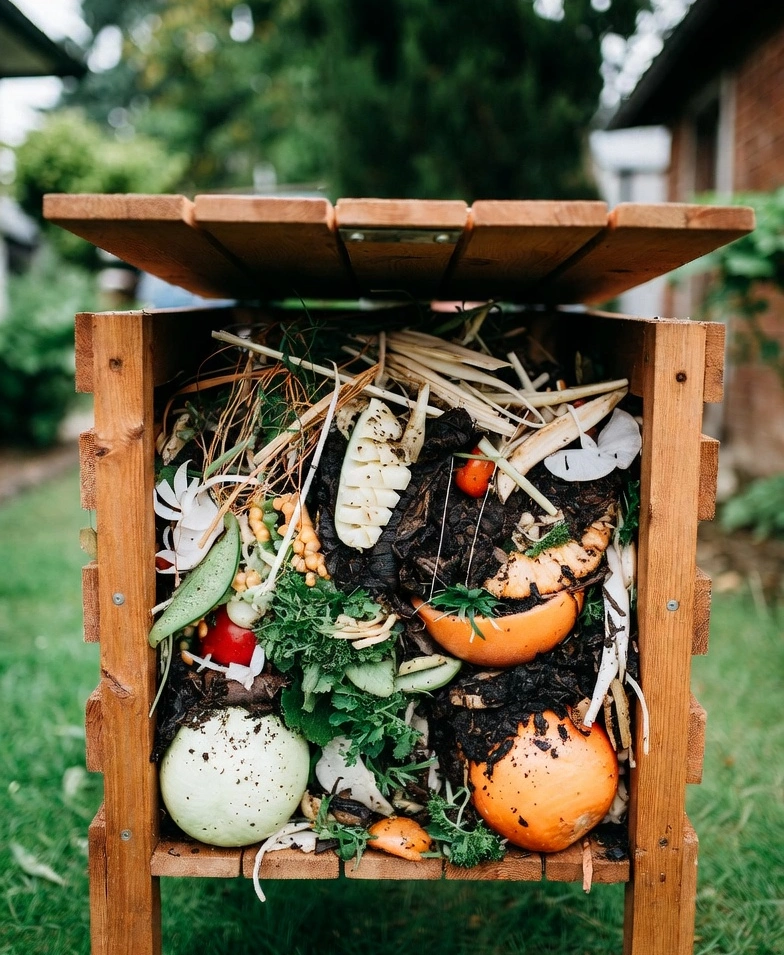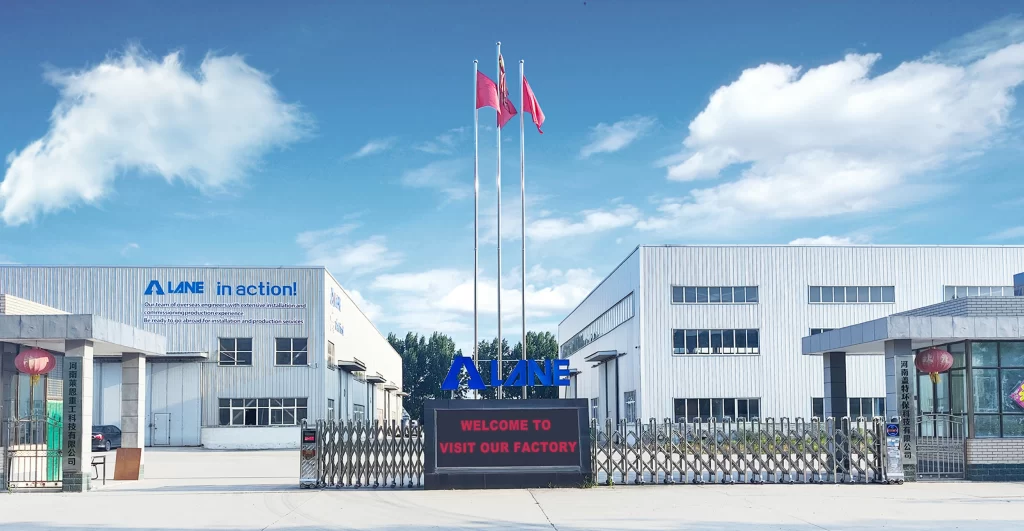The increasing demand for sustainable agriculture has prompted farmers, cooperatives and agricultural enterprises to seek compact and efficient solutions. A small-scale organic fertilizer granulation production system offers exactly that—an agile, cost-effective approach to turning organic raw materials such as livestock manure, food waste, or crop residues into value-added fertilizers. Unlike large industrial factories, these small systems are designed to be flexible, economical and easy to manage, making them particularly attractive to local agricultural communities and enterprises exploring circular economy practices.

Why a Small-Scale Organic Fertilizer Granulation Production System Matters
Sustainability in agriculture is no longer an option but a necessity. Traditional fertilizer models have been criticized for high energy consumption and long-distance logistics, often excluding smallholders from access to advanced technologies. By contrast, a small-scale organic fertilizer granulation production system provides decentralized production, allowing farms to process their own organic resources directly into fertilizer.
This shift means:
Lower transportation costs since raw manure and waste don’t need to travel long distances.
A consistent supply of customized fertilizer tailored to the farm’s soil requirements.
Reduced environmental impact by recycling nutrients locally instead of depending solely on industrial imports.
LANE, as an experienced provider of fertilizer production solutions, has been helping clients implement such systems with a focus on both efficiency and durability.
Raw Materials for a Small-Scale Organic Fertilizer Granulation Production System
The performance of a small-scale organic fertilizer granulation production system depends heavily on the quality and type of raw materials being used. Fortunately, these systems are highly versatile and can handle a wide range of organic resources, enabling farmers to recycle what they already have on hand.
(1) Commonly Used Raw Materials
Animal Manure: Poultry manure, cow dung, sheep manure, pig slurry.
Rich in nitrogen and organic matter, these materials are the backbone of many fertilizer production systems.
Crop Residues: Straw, corn stalks, husks, and other agricultural by-products.
When properly fermented, they balance the carbon-to-nitrogen ratio and add fiber to the final granules.
Food and Agro-Industry Waste: Fruit peels, sugarcane bagasse, brewery waste, and other biodegradable residues.
They not only reduce disposal problems but also supply nutrients like potassium and trace minerals.

Green Waste: Grass clippings, leaves, and pruning remains.
These materials decompose quickly and improve the microbial activity in fermentation.
Additives and Enhancers: Microbial inoculants, amino acid liquids, or mineral powders like rock phosphate.
These ingredients can be blended in the granulation stage to improve nutrient density and boost fertilizer effectiveness.
(2) Importance of Balanced Inputs
For optimal results, raw materials should be mixed to achieve the right C/N (carbon-to-nitrogen) ratio, usually between 25:1 and 30:1. This ensures efficient fermentation in the vertical fermentation tank and prevents common problems like odor, incomplete decomposition, or nutrient loss.
LANE often provides consultation on raw material management, helping clients design recipes tailored to local resources. By leveraging what is abundant—whether livestock manure in rural regions or food waste in urban settings—farmers maximize efficiency while minimizing costs.
Key Components of a Small-Scale Organic Fertilizer Granulation Production System
Although compact in footprint, the small-scale organic fertilizer granulation production system still integrates critical processing equipment to ensure output quality. Each stage is essential to achieve high efficiency while maintaining nutrient integrity.
| Stage | Equipment (Specific Names) | Function |
| Pre-Treatment | Vertical fermentation tank | Ensures stable fermentation and pathogen reduction. |
| Crushing | Vertical shaft crusher | Breaks down clumps of composted material for uniformity. |
| Granulation | Flat die granulator or disc granulator | Shapes raw material into uniform granules. |
| Polishing | Fertilizer polishing machine | Improves particle roundness and appearance. |
| Drying | Rotary drum dryer | Reduces moisture to optimal levels. |
| Cooling | Rotary drum cooler | Stabilizes granules for handling and storage. |
| Screening | Rotary drum screener | Separates qualified granules from oversized or undersized ones. |
| Packaging | Automatic packing machine | Provides ready-for-market, sealed fertilizer bags. |
This streamlined equipment setup gives operators the same production quality as larger plants, but at a fraction of the investment.
Advantages of a Small-Scale Organic Fertilizer Granulation Production System
While industrial-scale plants dominate global production, small-scale systems bring unique advantages:
Affordability: Lower investment makes it accessible for local farmers, cooperatives, and small enterprises.
Flexibility: Can be adjusted to handle diverse feedstocks—animal manure, food waste, crop residues.
Sustainability: Reduces greenhouse gas emissions by processing materials at their source.
Customization: Enables tailoring granule size (3–8mm) and nutrient profiles to specific crop needs.
Scalability: Designed for modular expansion, allowing future upgrades without dismantling existing lines.
LANE’s expertise lies in customizing these systems. By offering equipment optimized for smaller operations, combined with robust after-sales service and training, LANE ensures clients can confidently operate their fertilizer lines with minimal downtime.
LANE’s Approach: Beyond Equipment Delivery
Choosing a small-scale organic fertilizer granulation production system from LANE means more than just buying machinery. It’s about gaining a reliable partner:
Consultation and Design: LANE’s engineers provide tailored plant layouts based on client’s raw material and target capacity.
On-Site Training: Operators are trained not just on usage but also troubleshooting and efficiency optimization.
Global Experience: From Asia to Africa, LANE has delivered compact systems that proved transformative for local agriculture.
Sustainability Alignment: LANE integrates designs that comply with environmental regulations and encourage circular farming models.

Looking Toward the Future
As demand for sustainable and localized fertilizer production grows, small-scale organic fertilizer granulation production systems are expected to play a central role in bridging the gap between local farms and global sustainability goals. With rising costs of chemical fertilizers and increasing restrictions on waste disposal, these systems present a forward-looking solution.
LANE, with its expertise and proven track record, is positioned to help agribusinesses transition into this new era of compact, high-performing fertilizer production.
The future of agriculture lies not only in large-scale projects, but also in convenient small-scale innovations that empower communities. The small-scale organic fertilizer granulation production system demonstrates that efficiency does not necessarily depend on scale. With the right partners like LANE, farmers and enterprises can unlock the value of their organic resources, enhance resilience, and contribute to a sustainable food system.
For more details, please feel free to contact us.
Henan Lane Heavy Industry Machinery Technology Co., Ltd.
Email: sales@lanesvc.com
Contact number: +86 13526470520
Whatsapp: +86 13526470520